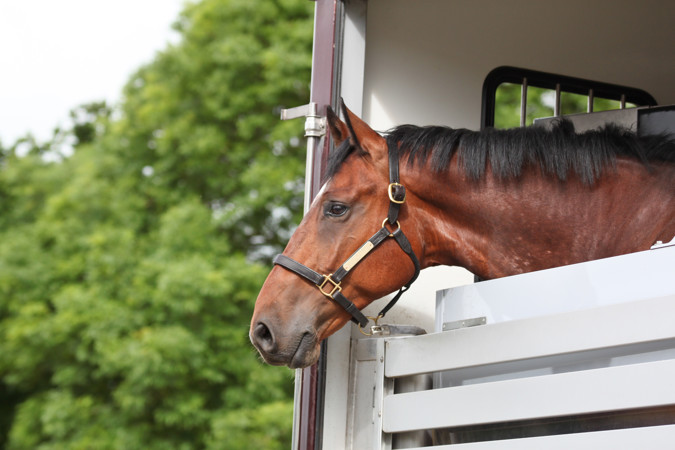Travelling horses in hot weather
22 Jul 2021
When travelling horses, keeping them hydrated is one of the most important considerations when ensuring optimum health, happiness and performance.
It is not always easy to spot signs of dehydration but the consequences can be devastating. From fatigue, loss of performance and unusual behaviour to serious illnesses like colic and sometimes even death. Hydration must be a key consideration for anyone involved in travelling horses by road, from a quick trip locally to or a full day journey to a four-star event.
For any type, or size of pony, the risk of dehydration is just as prevalent, these guidelines are to provide a clear and practical support for anyone involved in transporting horses.
Travelling horses in hot weather:
Do your homework
Try to plan your travel around the weather conditions and avoid travelling during high temperatures and high humidity, setting off a bit earlier or later could make the experience much more pleasant for both you and your horse.
Plan ahead
Ensure horses are fully hydrated before setting off by providing them with unrestricted access to forage and water for at least six hours with plenty of space to rest and relax.
Prepare for the worst
When travelling you just never know when or for how long you might get held up, so make sure you have plenty of feed and water on board to keep your horses happy and healthy.
Provide good quality forage
Access to good forage will not only maintain a healthy digestive system and provide energy for the horse, it also creates a small ammount of fluid in the horse’s gut to help keep them hydrated.
Stick to frequent watering intervals
Horses should be offered water at least every four and a half hours whilst travelling, more frequently in hot weather conditions.
Make water tempting
Frustratingly, horses can be very fussy when offered water, however we must stress that this doesn’t mean they’re not thirsty. If possible, try and take water from home and provide it in a bucket they are used to drinking from. You can also try flavouring the water with apple juice or a small amount of wet feed.
Minimise stress
Horses can become dehydrated more quickly when they are stressed / unsettled. Loading and unloading are two of the main stressors for horses when travelling so make sure you do as much as you can to keep the process calm and relaxed. Practicing often without the pressure of heading to a show or event will help. Ensure the vehicle is well. Drive carefully to make the journey as smooth as possible.
Prepare for the arrival
Give plentiful forage and water upon arrival at your destination. If you’re travelling to a show or event, make sure your horse has time to relax, eat and drink before starting exercise or competing.
Know the signs of dehydration
A dehydrated horse can deteriorate quickly. But symptoms can be very hard to spot so make sure you know what signs to look out for so that you can act fast.
- depression
- lethargy
- dullness in eyes
- decreased appetite
- lack of or infrequent urination or defecation
- licking surfaces
- abnormal drinking behaviour such as drinking for extended periods of time
- taking long draughts or gulping water.
